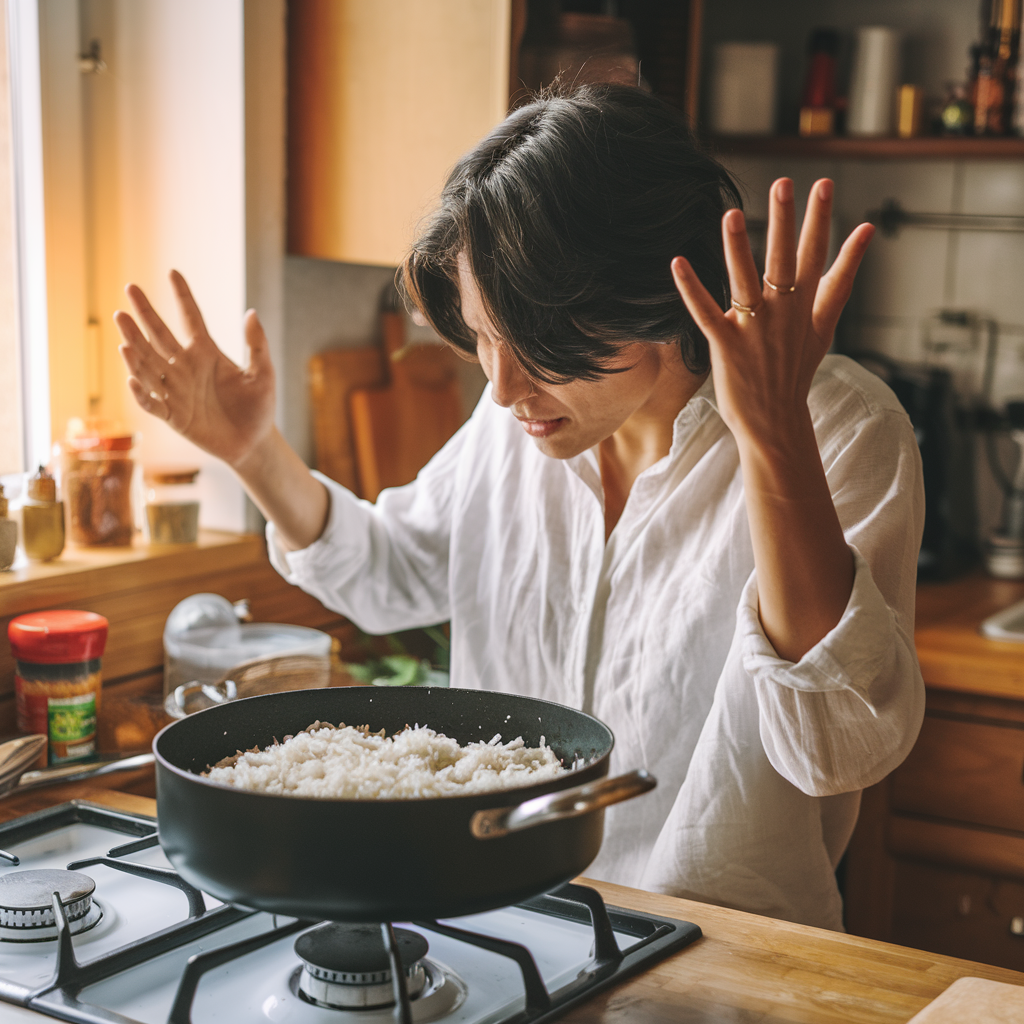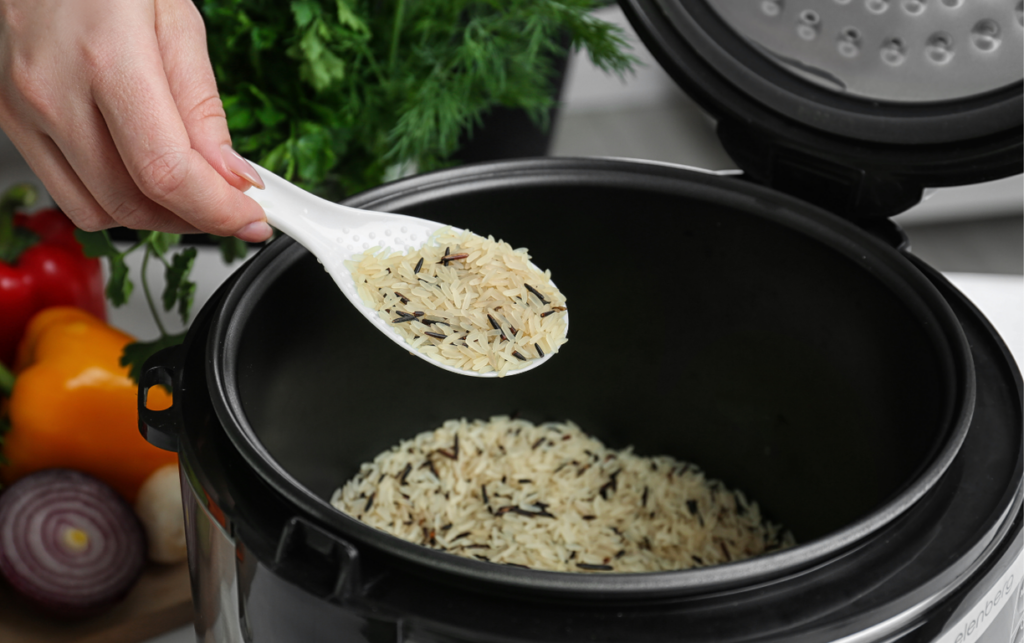Physical Address
304 North Cardinal St.
Dorchester Center, MA 02124
Physical Address
304 North Cardinal St.
Dorchester Center, MA 02124

To rice cooker or not to rice cooker? Discover if this kitchen gadget is worth the hype for you!
So, you’re thinking about getting yourself a rice cooker, but you’re not quite sure if it’s worth it. Let’s break down the good and the not-so-good about this handy appliance.

A rice cooker can be a game changer, especially if rice is a regular guest on your dinner table. Here’s a quick look at how it can make your life easier:
| Benefit | Description |
|---|---|
| Time Saver | Set it and forget it! A rice cooker handles the cooking, so you can get on with other things while your rice cooks. |
| Perfect Rice, Every Time | No more guessing games. These gadgets make sure your rice is just right, avoiding both mushiness and crunchiness. |
| No Babysitting Required | Toss in the rice, add water, hit start, and walk away. It takes care of the rest—no need to hover around the stove. |
| More Than Just Rice | Many cookers now offer settings for a variety of grains, earning their keep beyond just rice preparation. |
Of course, nothing’s perfect. Rice cookers come with their own set of cons that you might want to think about:
| Drawback | Description |
|---|---|
| Not a Jack-of-all-Trades | Mostly built for rice and grains, they can’t compete with the multi-tasking of other kitchen gadgets. |
| Space Hog | They can hog precious counter or storage space, which might be a big deal if you’re working with a small kitchen. |
| Price Tag | A kickass rice cooker can be pricey, possibly blowing the budget for what you get out of it. |
| Cleanup Duty | Unlike your favorite no-clean-up snack, these need regular tidying to keep them running well—another task on your list. |
Before you decide if this little gadget belongs in your kitchen, think about what you need in your cooking routine, how much space you’ve got, your budget, and if you’re up for keeping it in good shape. Want more dirt on the downsides? Check out our article on what are the disadvantages of a rice cooker?.
So, you’re thinking about getting a rice cooker? Let’s help you figure out if it’s your kitchen’s new best friend. Here’s a breakdown of what to think about before swiping your credit card and figuring out if the rewards make it a smart buy.
First up, ask yourself – are you practically a rice connoisseur, or just a casual muncher? Consider how often you whip up rice-heavy meals and the amount you cook. If you’re banging out rice nearly every day, a rice cooker might become your new kitchen MVP. There’s also a buffet of options out there – from basic models to all-in-one appliances. Pick one that fits your groove.
Imagine comparing cooking rice on the stove versus in a rice cooker. Check out this nifty table that lays it all out for you:
| Aspect | Traditional Stove Method | Rice Cooker Method |
|---|---|---|
| Time Consumption | Babysit and stir | Dump it in and forget it |
| Energy Efficiency | Might end up with dodgy grains | Cooks like a champ, no sweat |
| Cleanup | Arm yourself with soap and sponge | Quick swipe and you’re done |
| Cost of Equipment | Old pots and new pans | Gotta buy the cooker first |
| Long-Term Savings | Wastes a bit more juice | Frees up your schedule |
Think about the price tag first – you’ll spend upfront for a rice cooker, but consider this: no more stressing over burnt bottoms or mushy disasters. Your trusty rice cooker will serve perfect fluffy rice while you’re off doing other things.
And speaking of easy living, convenience is the name of the game here. With buttons galore and a built-in brain to turn off when it’s done, a rice cooker is like having a personal kitchen assistant. Great if your calendar looks like a crazy jigsaw puzzle!
In the end, whether a rice cooker’s destined for your countertop depends on your eating habits, time crunches, and finances. By looking over your habits and the pros and cons, you’ll know if this kitchen gadget earns its keep in your home sweet home.

Thinking about whether a rice cooker will fit into your kitchen life? There are some tall tales floating around, and it’s time we set the record straight. Let’s shine a spotlight on a couple of the biggest myths: time-saving wonders and the whole fuss about quality and taste.
Many folks reckon that rice cookers are magic time-savers. Truth is, while they do the cooking for you and save you the hassle of stirring and checking, they don’t necessarily shave minutes off your prep time. The clock doesn’t always tick faster—because time frames depend largely on the type of rice you’re working with and even the cooker’s brand.
And, hey, we’ve all wished for a “set it and forget it” gadget. But hold on—some rice, like brown or wild rice, likes to take its sweet time or even a soak before cooking. This means your rice cooker might not always pull off dinner in a flash like you’d hoped.
Before jumping to conclusions, think about what you whip up most often and your own kitchen habits. Knowing what a rice cooker can really save in terms of time helps keep your expectations in check—and saves you from throwing the gadget out of the window when it doesn’t live up to the dream.
Here’s the buzz: some believe that stovetop rice trumps all in taste and texture. Yet, many modern rice cookers aim to serve up perfect, fluffy rice without a fuss. Personal taste does matter, but cookers today are built to be consistent little chefs in your kitchen.
Worried about soggy or clumpy rice? Don’t be. With the range of settings on umpteen cookers out there, you can pick what suits your taste, whether you like it sticky or separate.
The real scoop on rice cooker results is all down to the details—water ratios, rice variety, and the knob settings on your cooker. Tweaking these lets you hit that sweet spot, turning out rice just how you like it.
So, before you dismiss or fall head over heels for a rice cooker, get wise to these misconceptions. When you know what’s what, it’s easier to decide if a rice cooker deserves a place on your countertop or belongs back on the shelf at the store. Let’s face it, knowing the real from the fluff can really steer your kitchen game.
So, you’re pondering whether a rice cooker deserves its own little spot in your kitchen? Let’s dig into what you really want and need in order to make a choice you’ll be happy with.
First up, think about your cooking habits. Are you the rice-every-dinner type, or is it a once-in-a-blue-moon affair? If rice is your jam and saving time is a must, a rice cooker could be your new best buddy.
Think about how much rice you usually whip up at once. Rice cookers come in all shapes and sizes, so picking one that matches your typical batch size can save you from having leftovers languishing in the fridge or, even worse, cooking multiple rounds.
Now, onto the rice types you love. Are you a white rice whiz, a brown rice fan, or do you dabble with quinoa and risotto? Some rice cookers are just made for specific grains. Picking one that matches your favorites will make sure your rice game is solid.
Sure, a rice cooker can make life easier and your rice results more predictable. But sometimes, old-school methods are just as good—or even better. Cooking rice on the stove with a trusty pot lets you keep an eye on things and tweak the texture just how you like it.
Or, consider a pressure cooker. It’s a kitchen multitasker that can double as a rice cooker, and it’s a speed demon when it comes to turning raw rice into a ready-to-eat side.
If you prefer a hands-on cooking style or need to clear out some kitchen gadgets, perfecting the art of stovetop rice cooking can feel pretty rewarding. It also gives you freedom to fiddle with the process to suit your taste.
By really thinking about what you need and enjoying some trial and error with various methods, you can figure out if a rice cooker fits in with your cooking style. Knowing the perks and pitfalls of each method will put you on the path to culinary success in no time.